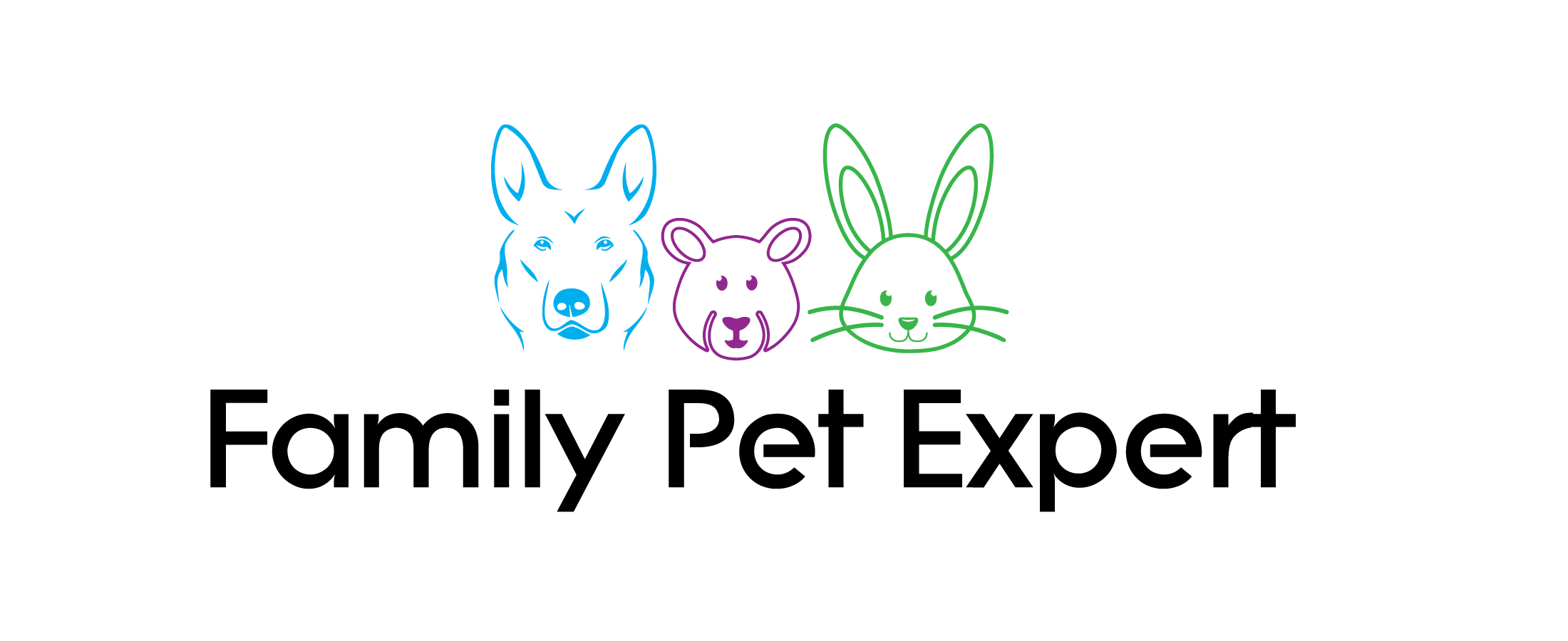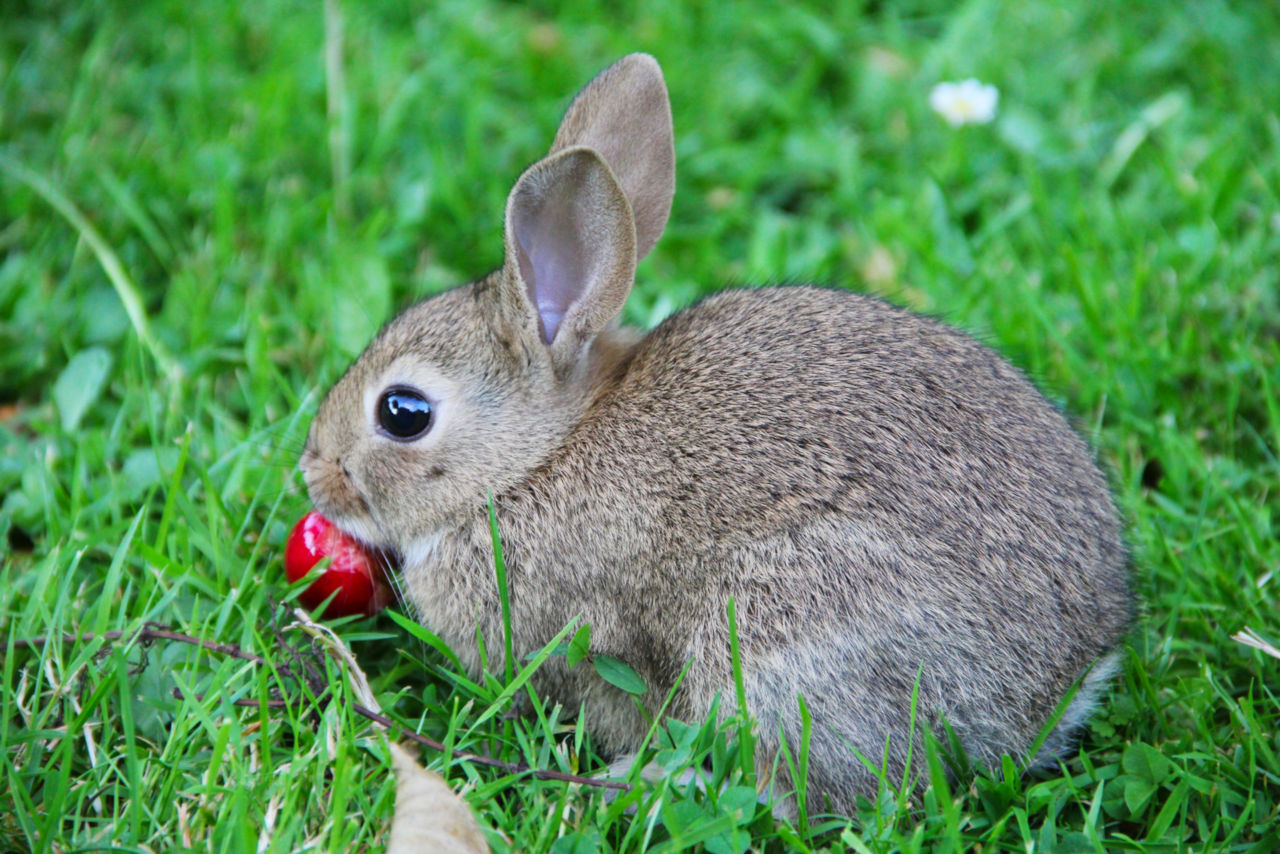Rabbits often have a sweet tooth, but their stomachs are very sensitive. You should, therefore, always carefully check what they eat. Although their diet consists mainly of hay, fruit, vegetables, and water, some ingredients can harm them. Are cherries suitable for rabbits?
Rabbits should only eat cherries in tiny quantities. Whether sweet or sour, cherries generally contain too much sugar for rabbits. They are, therefore, not suitable for rabbits and should only be fed occasionally as a small treat.
In this article, you will learn everything you need to know about feeding cherries to your rabbits. We also give you general care tips so that your rabbit can enjoy the best quality of life in your care.
Can Rabbits Eat Cherries?
The short answer: Rabbits can eat cherries, but only in small quantities and not too often.
Due to their preference for sugary foods, rabbits tend to go a little overboard when eating cherries. However, cherries can be harmful to their stomach and digestive system.
Some cherries are sweet, others are sour, but even the sour varieties contain a lot of sugar. Therefore, you should never feed too many cherries.
The trick is to cut the cherry into small pieces before feeding it to your rabbits.
Cherries have a hard stone and often also a small stem. Your rabbit can choke on both, so you should remove the small stem and pit before feeding them.
Due to their high sugar content, cherries can cause obesity in rabbits if they overeat of them.
Nutritional Value of Cherries for Rabbits
Fresh cherries are packed with minerals and vitamins such as vitamins A, B6, C, and K. They also contain fiber and water, which is very beneficial for the rabbit’s digestive system.
Vitamin C is known to support your rabbit’s blood system and muscles.
Cherries contain vitamin C, cyanidin, and anthocyanins, excellent antioxidants. These substances have an anti-inflammatory effect and thus prevent cell damage.
The polyphenol content of cherries also helps to lower your rabbits’ blood pressure.
Cherries also contain a large amount of melatonin, which helps your rabbits to relax and improve their sleep cycle.
However, the sugar content overshadows the many benefits of cherries. You need to limit how many cherries your rabbits eat as they cannot regulate this themselves.
The phosphorus content in cherries is another reason to limit their consumption. The phosphorus can cause bloating in rabbits.
How Many Cherries Can Rabbits Eat?
Cherries should only supplement a rabbit’s diet. Just like chocolate in humans, rabbits should not consume cherries daily or in large quantities.
You should limit the consumption of cherries to a maximum of twice a week. And give a maximum of one cherry per portion per rabbit.
If you are just getting your rabbits used to cherries, start small, perhaps with a quarter or half a cherry, and then monitor the droppings.
Start with portions of about 1 gram per pound (2 grams per kilogram) of your rabbit’s body weight.
As fruit should only ever be a supplement, make sure that your rabbits continue to eat their regular food.
Another problem can arise if you give your rabbits too many sugary foods simultaneously.
If you give your rabbits cherries, you should not feed them other fruits on the same day. If you have to, reduce the amount of cherries even further.
You should also limit the feeding of cherries to adult rabbits. They are even more harmful to young rabbits. Please wait until your young rabbit is about seven months old before giving it fruit.
What Happens if Rabbits Eat Too Many Cherries?
There are consequences if you let your rabbits eat too many cherries.
Among other things, too many cherries can cause gastrointestinal stasis. This is a condition that can severely affect a rabbit’s digestive system.
This condition can result in a buildup of harmful bacteria in the appendix that causes disease. The first sign of gastrointestinal stasis is a loss of appetite in your rabbit.
You can also examine his bowel movements, as gastrointestinal stasis causes constipation.
Diarrhea can be another consequence of eating too many cherries. Diarrhea can dehydrate a rabbit’s body, and if consumed for long periods, it can lead to weight loss and eventually death.
Too much sugar can also cause diabetes and obesity in rabbits. The sugar content of cherries is also enough to cause dental problems such as tooth decay.
Can Rabbits Eat Other Parts of a Cherry Tree?
The cherries are the only thing you can safely feed your rabbits. Other parts of the cherry tree, such as the leaves, cherry pit, and stem, contain cyanide, which is toxic to rabbits.
Cyanide can cause anoxia, a fatal condition in which the rabbit’s body and brain no longer receive enough oxygen.
As soon as you realize that a rabbit has ingested something other than fruit from a cherry tree, it would be best if you took it to the vet.
Look out for these symptoms if you suspect your rabbit has eaten a harmful part of the cherry:
- Restlessness
- Excessive salivation
- Loss of appetite
- Breathing problems
- Diarrhea
- General weakness
- Listlessness
- Hunched posture
Can Rabbits Eat Dried Cherries?
Rabbits should not eat dried cherries. Feeding dried cherries is harmful to the rabbit’s digestive system.
They should also not eat dried cherries because their water content has been removed. As a result, they contain almost three times as much sugar as fresh cherries.
Can Rabbits Eat Canned Cherries?
Canned cherries and other canned fruit are not suitable for rabbits. Most canned fruit is either cooked or drowned in a sugar syrup that is already harmful to rabbits.
In addition, rabbits have difficulty digesting cooked foods. Therefore, it is best to feed them only raw cherries.
How to Prepare Cherries for Your Rabbits
Due to their weak stomachs, rabbit food must be prepared carefully so no harmful ingredients enter their intestines.
Careful preparation also involves thoroughly washing the cherries to remove any pesticides.
Cherries are usually sprayed with pesticides to prevent pest infestation. These pesticides can stick to the fruit. If they are not removed, the chemicals can end up in your rabbits’ intestines.
Serve the cherries in a bowl. Cherries have an intense color that could stain your sofas and carpets. Serving them in a bowl will ensure the stains don’t get onto your furniture and fabrics as quickly.
Choose the Best Cherries for Your Rabbits
When selecting the best cherries for your rabbits, the first thing you should look for is quality.
If possible, always choose organic cherries and make sure they are ripe. A ripe cherry is either bright red, yellow, or yellowish-red.
You can carry out a taste test before buying the cherries. Ripe cherries should be a little firm; a mushy cherry can signify overripeness or spoilage.
Are There Healthier Alternatives to Cherries?
Many healthier alternatives to cherries exist that you can feed your rabbits. Here is a short list of readily available fruits and vegetables that are better for rabbits:
- Cabbages
- Carrots
- Cilantro
- Basil
- Apples
- Bananas
- Kale
- Peppers
- Pears
Remember to check any type of food for your rabbits carefully beforehand. Make sure it has a high nutritional value and no side effects.
Conclusion: Can Rabbits Eat Cherries?
Adult rabbits can eat cherries. Fresh cherries can even benefit them in small quantities.
When introducing rabbits to fruit, you should start with a small amount so their stomachs can get used to it.
Any other form of cherries, including canned cherries, candied cherries, cherry juice, or cooked cherries, is terrible for your rabbit’s health.
However, you should generally only feed cherries rarely and in small quantities.


